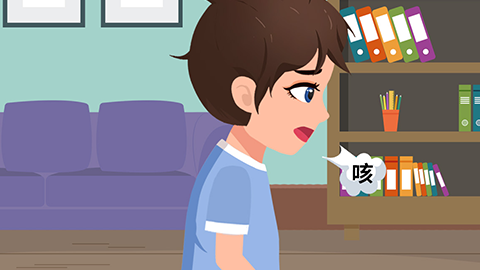Why does a child have a severe cough when they have a cold, and what should be done?
Generally, severe cold and cough in children may be caused by dry air, inhalation of irritant gases, common cold, acute bronchitis, pneumonia, and other reasons. It is recommended to seek timely medical attention and follow the doctor's guidance for general treatment, medication, and other treatment methods. The specific analysis is as follows:

1. Dry Air
When the air is dry, the respiratory mucosa loses moisture and becomes dry. Dry mucosa is easily irritated, triggering a cough reflex. It is important to maintain an appropriate indoor air humidity, and a humidifier can be used. Drinking plenty of water daily to replenish fluids helps maintain moisture in the respiratory mucosa.
2. Inhalation of Irritant Gases
When children inhale irritant gases such as smoke, dust, pollen, etc., the respiratory mucosa becomes irritated, triggering a cough reflex. These gases stimulate nerve endings on the respiratory mucosa, causing nerve impulses that lead to coughing. It is recommended to avoid taking children to places with smoke, dust, or pollen. During hazy weather, outdoor activities should be minimized, and if necessary, wear a mask when going out.
3. Common Cold
The common cold is caused by viral infections, such as rhinovirus, coronavirus, etc. Viruses multiply extensively in the respiratory tract, irritating the mucosa and triggering an inflammatory response, which may cause coughing. It is often accompanied by symptoms such as runny nose and sneezing. Under the guidance of a doctor, medications such as ribavirin granules, acyclovir tablets, amantadine hydrochloride tablets, etc., can be used for treatment.
4. Acute Bronchitis
Acute bronchitis occurs after bacterial or viral infections cause inflammation of the tracheal and bronchial mucosa. The inflammation irritates the tracheal and bronchial mucosa, causing them to secrete large amounts of mucus, which leads to coughing. Symptoms also include phlegm production and fever. Follow medical advice to use medications such as amoxicillin capsules, cefixime granules, dextromethorphan hydrobromide syrup, etc., for treatment.
5. Pneumonia
Pneumonia is caused by pathogens such as bacteria, viruses, and mycoplasma infecting lung tissue. Pathogens multiply extensively in lung tissue, triggering an inflammatory response that may irritate the respiratory tract, causing coughing. Symptoms also include chest pain and difficulty breathing. Patients can use medications such as azithromycin for oral suspension, ambroxol oral solution, ceftriaxone sodium for injection, etc., under the guidance of a doctor.
In daily life, ensure good indoor air circulation and fresh air; avoid contact with allergens such as pollen and dust; engage in regular exercise to strengthen physical health and improve immunity.




